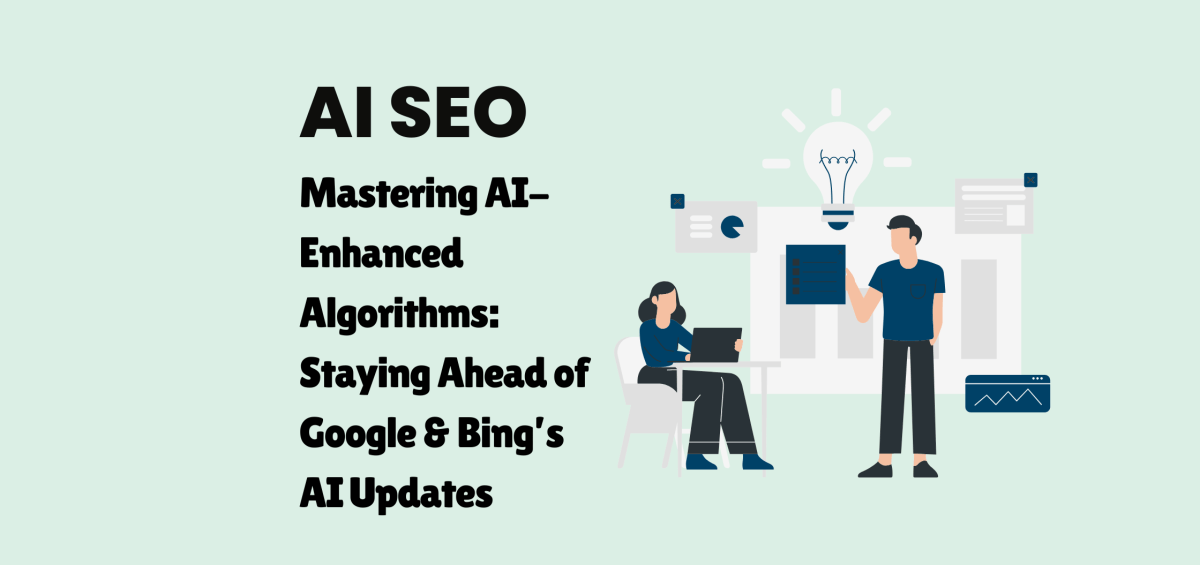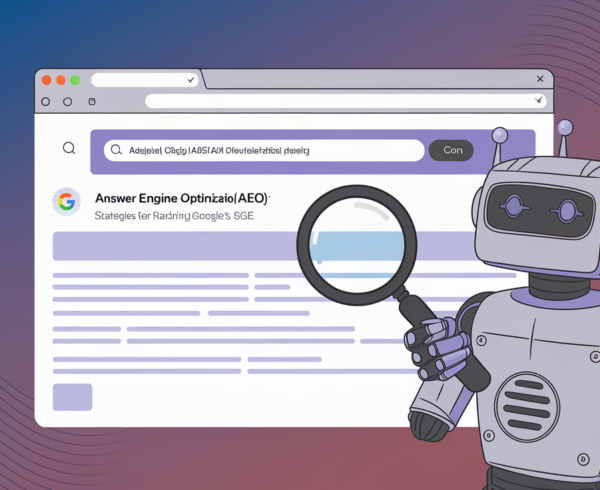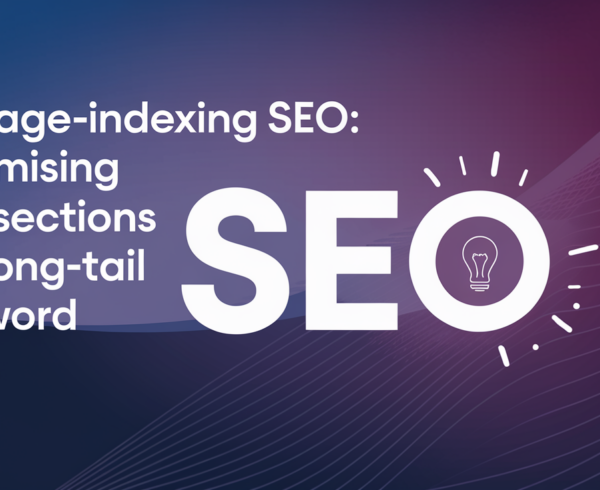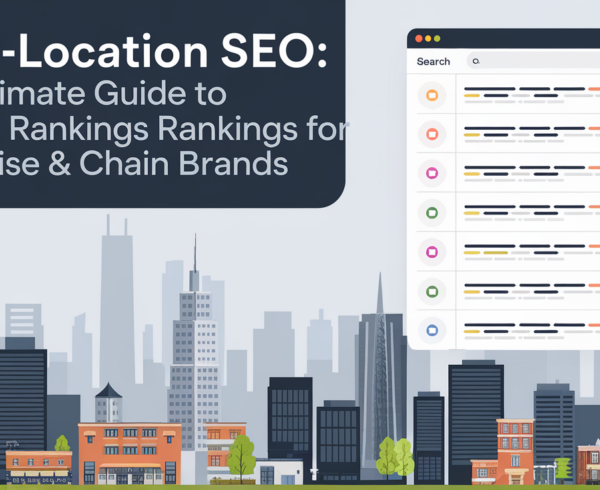Introduction
The world of search engine optimization (SEO) is undergoing a massive transformation. For years, businesses have relied on optimizing their websites for keywords and building backlinks to secure top positions on search engine result pages (SERPs). However, the rise of artificial intelligence (AI) is shaking up the status quo. AI is no longer a distant future concept—it’s already here, and it’s changing how search engines understand user intent, rank content, and provide answers to search queries.
In this article, we’ll explore how AI is revolutionizing SEO, particularly the way search engines rank and present content. We’ll also examine what this means for businesses looking to adapt to the evolving search landscape and how they can future-proof their SEO strategy. From AI-driven search experiences to the rise of generative answers, we’ll break down the key trends that senior marketers and business owners need to consider in order to stay ahead of the curve.
AI is Changing the Search Landscape
The introduction of AI-powered search algorithms marks a seismic shift in how search engines operate. Unlike the traditional model, where search engines primarily relied on keywords and backlinks to rank pages, AI allows them to understand context and intent at a much deeper level. As a result, search engines can now provide users with more accurate, relevant answers based on the true meaning of their queries.
The Role of AI in Search Engines
Search engines like Google and Bing have incorporated advanced AI technologies into their algorithms. These systems, including Google’s RankBrain, BERT, and MUM, help search engines interpret not just the words in a query, but the context behind them. AI helps these algorithms understand complex search queries, especially those involving natural language or conversational searches.
For example, RankBrain, launched in 2015, was one of the first AI systems to help Google better understand ambiguous or unusual queries by analyzing search patterns. More recently, BERT and MUM have brought even more powerful capabilities, allowing Google to understand context in longer, more conversational search queries. MUM (Multitask Unified Model) takes this a step further by processing multiple modalities—text, images, and even video—to provide more relevant and comprehensive search results.
For any SEO agency managing client campaigns, understanding these models is no longer optional—it’s essential.
Generative AI in Search Results
AI is not just changing how search engines rank content; it’s also changing the search experience itself. Both Google and Bing have introduced generative AI features that provide users with answers directly in the search results, eliminating the need to click through to a website for information. This shift is giving rise to a new search paradigm—one where users are looking for instant answers rather than browsing through multiple links.
- Google’s Search Generative Experience (SGE): This feature provides users with an AI-generated answer (or “AI overview”) directly on the search results page. For example, when users search for information on plant care, Google can provide a concise, AI-generated summary about the best times to prune plants, effectively answering the query without requiring a click.
- Bing’s AI Chat Mode: Similarly, Bing has integrated an AI-powered chat feature that allows users to refine and clarify their queries in a back-and-forth conversation, making it easier for them to get the exact information they need in real-time.
Actionable Tip
AI-driven search features, like generative answers, are changing the way users interact with search engines. To stay visible in this evolving landscape, businesses need to focus on creating high-quality, authoritative content that can be referenced or cited by AI systems. Use structured data (schema markup) to make your content easily digestible for search engines, ensuring it has a better chance of being selected as an AI-generated response.
Implications for SEO and Organic Traffic
For businesses, this AI-powered search revolution presents both opportunities and challenges. One immediate concern is the potential decline in organic traffic. With more and more queries being answered directly on the search results page, users may no longer need to click through to websites.
Early data suggests that the rise of generative AI responses could lead to a decrease in click-through rates (CTR) for organic search results. For instance, one study predicted that AI-driven features could lead to an 18% to 64% reduction in organic clicks as users find answers directly within the search results. This aligns with the zero-click search trend, which has been gaining momentum in recent years.
Does this mean SEO is dead? Absolutely not. However, businesses will need to adapt their strategies in order to thrive in this new environment. SEO no longer relies solely on ranking #1 for a keyword; now, businesses must also ensure their content is featured in AI-generated answers or is compelling enough to entice users to click through when they want more in-depth information.
Strategic Adjustments for SEO
In this AI-powered landscape, businesses should consider new strategies for staying visible. Here are some actionable steps for adapting:
- Target Long-Tail, Conversational Queries: Since AI is great at answering more specific, natural language queries, businesses should focus on long-tail keywords and conversational phrases that users are more likely to ask via voice search or chat-based interfaces.
- Optimize for AI-Driven Features: Work to have your content featured in rich snippets, knowledge panels, and AI-generated answers. This involves creating content that directly answers common questions in a clear, concise manner. FAQ sections and how-to guides are great for this purpose.
- Diversify Your Marketing Strategy: As organic traffic becomes more competitive, businesses should explore combining SEO with paid search and other channels to capture visibility. Consider investing in PPC ads or social media marketing to complement your organic strategy.
The Silver Lining: New Opportunities
Despite the challenges AI poses to traditional SEO, there’s also a significant opportunity for businesses that can adapt quickly. Being cited as an authoritative source in AI-generated answers is becoming a new form of ranking in the AI-driven search world. If your content is the one AI systems turn to when providing answers, your brand can still gain visibility and trust, even if the click-through rate decreases.
To position your business as a trusted source for AI-generated answers, it’s essential to double down on content quality, expertise, and authority. Building up E-E-A-T (Experience, Expertise, Authoritativeness, Trustworthiness) signals is critical in the AI era. Businesses that prioritize these principles and optimize their content for AI selection will have the advantage in this new search ecosystem.
Conclusion: Preparing for the AI Search Revolution
The AI search revolution is here, and businesses must adapt to the new realities of AI-powered search. While AI is reshaping how search engines work, it also creates new opportunities for those who can leverage these changes. By focusing on quality content, AI optimization, and diversification, businesses can maintain visibility and succeed in the evolving world of search.
In the upcoming parts of this series, we’ll explore how to master AI-driven algorithms, strategies to scale content creation responsibly, and more ways to stay ahead of the competition. Stay tuned!






